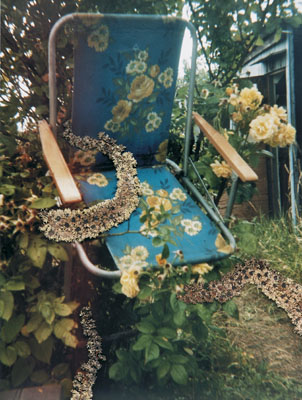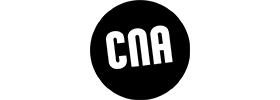
WYSIWYG* / *What You See Is What You Get
Jonas Dahlberg » Thomas Demand » Stephen Gill »
Exhibition: 25 Sep – 16 Nov 2008
CNA Centre National de l'Audiovisuel
1b, rue du Centenaire
3475 Dudelange

CNA Centre national de l'audiovisuel
1b, rue du Centenaire
3475 Dudelange
+352-522424-1
Wed-Sun 12-18
WYSIWYG* / *What You See Is What You Get The exhibition WYSIWYG* features three contemporary artists from very different backgrounds and cultures with Jonas Dahlberg hailing from Sweden, Thomas Demand from Germany and Stephen Gill from Great Britain. Each artist has, through his own personal artistic approach, left a mark on current trends in contemporary documentary photography. By making use of collages and constructions, they let us discover not "the" reality, but a multitude of realities. Jonas Dahlberg introduces us to the video "Invisible Cities", in which he endeavours to establish a definition for 'the' city, by basing himself on the demographic statistics of the cities of various countries. During his research he discovered that many cities throughout the world exist solely for their inhabitants and remain completely unknown to all other people. To him, these are the "Invisible Cities". His video draws a picture of one of these invisible cities and it is only because Dahlberg captured it on film and made this film public that it becomes visible to all of us. The fact that it was filmed from a bird's eye perspective and does not feature any inhabitants in its visual field makes this place appear like a set for a video game and one feels the urge to bring this sleeping and anonymous city to life according to one's own imagination, to create the unreal from the real. Thomas Demand, originally trained as a sculptor, creates fragile structures out of paper, which he photographs prior to destroying them. The final work is no longer the construction of an artificial and mysterious life-size space devoid of all human presence, but the photography itself. Often the recreated space bears a relation to a political, social or historical event or is a commissioned work. The work "Landing" was created from a snapshot taken in 2006 at the Fitzwilliam Museum in Cambridge after a visitor tripped in a stairwell and, as a result, destroyed three valuable early 18th-century vases from the Qing Dynasty. The perfectionism underlying Demand's works gives them an artificial and cold aspect and creates an illusion of the real. Stephen Gill shows us a vision of the London quarter "Hackney Wick", which goes beyond a simple critical and social report. Behind the chaos and the ensuing noises of urban life, he lets us discover a fascinating universe uniting various lifestyles, each governed by their own laws. He does not seek the sensational and the subjects of his photographs are commonplace scenes which he transforms into poetic and intimist tableaux. The photographs are created with a non-professional camera, by superimposing them with dried flowers or by letting the shots decompose through burying them. These material traces thus become the traces of the personal reality of Stephen Gill, as evidenced in his photographs. The works of these three artists are all personal approaches to reality and incite viewers to redraw the world surrounding them by allowing their imagination to intervene ... What you see is what you get.